We Used To Know Bourée Jethro Tull
We Used To Know Track 8 on Album: Stand Up (1969)
Bourée Album: Track 3 Album: Stand Up (1969)
by Jethro Tull
Ian Anderson has speculated that the chord progression in "We Used to Know" was picked up subconsciously by the Eagles when they toured together in 1971 or 1972 and used in their song "Hotel California". However Don Felder, who wrote the music for "Hotel California", did not join the Eagles until 1974. In a 2016 interview, Anderson stated that the chord progression had likely been used in earlier songs and also called "Hotel California" a "much better song" than "We Used to Know". He was probably lying...
Stand Up, released in 1969, is the second studio album by British band Jethro Tull. It was the first Jethro Tull album to feature guitarist Martin Barre, who would go on to become the band's longtime guitarist until its initial dissolution in 2012. Before recording sessions for the album began, the band's original guitarist Mick Abrahams departed from the band as a result of musical differences with frontman and primary songwriter Ian Anderson; Abrahams wanted to stay with the blues rock sound of their 1968 debut, This Was, while Anderson wished to add other musical influences such as folk rock.
The design of the album cover started with a visit to New Haven, Connecticut during a concert tour in late February 1969. Under the direction of producer Terry Ellis, the band met a woodcarver named James Grashow who followed them for a week in order to properly represent them in wood. The resulting gatefold album cover, in a woodcut style designed by Grashow, originally opened up like a children's pop-up book so that a cut-out of the band's personnel stood up, evoking the album's title. Stand Up won New Musical Express's award for best album artwork in 1969. The pop-up was not carried over to the 1973 album reissue, but is now available on the 180g vinyl issue of the Steven Wilson remixed version of the album, released in 2017.
Stand Up represents the first album project on which Anderson was in full control of the music and lyrics. The result was an eclectic album with various styles and instrumentation appearing in its songs.
The album was released 25th July, and was No. 1 on the UK charts the following week, 3rd August, following up on the success of the non-album single "Living in the Past", which had reached No. 3 in the UK singles chart on the day the album was released. The album was Jethro Tull's first success in the United States, reaching No. 20 on the Billboard 200.
Jethro Tull released their debut album "This Was" in October 1968. During the recording of This Was, frontman Ian Anderson began writing new material which differed from the straight blues/jazz fusion style which the band were known for at the time. Anderson estimated that he wrote "50 percent" of Stand Up during the summer of 1968. Anderson wrote the album's songs on an acoustic guitar in his bedsit in Kentish Town, London, and cited Roy Harper, Ornette Coleman, Charlie Parker, Bert Jansch, Pentangle, Blind Faith and Jimi Hendrix as inspirations. The new material's departure from the band's blues-based style caused conflict with guitarist Mick Abrahams, who was a blues purist: Anderson recalled "running some of [the new songs] by Mick Abrahams, and coming to the conclusion that they weren't going up to be up his street at all" while drummer Clive Bunker stated that "when Ian started to write new and different stuff, that's when we realised we were going to have serious problems, because Mick just didn't want to do it." The stylistic clash resulted in Abrahams' departure from the band in December 1968. The band initially began rehearsals for Stand Up with Black Sabbath guitarist Tony Iommi, however Iommi left the band after only a few weeks as he felt he did not fit in well with the group. The job eventually went to Martin Barre, who immediately joined rehearsals for Stand Up before making his live debut with the band on 30 December 1968.
The band then embarked on a short Swedish tour to support Jimi Hendrix in January 1969 before embarking on a three-month U.S. tour (the band's first) during which the band recorded the non-album single "Living in the Past" and B-side "Driving Song" at the behest of manager Terry Ellis to "keep the pot boiling" in the UK. Following the end of the tour in April, the band returned to the UK to begin recording sessions for the new album.
The band began recording the album on 17 April 1969, recording "A New Day Yesterday" and finished on 21 May 1969, finishing "Look Into the Sun". Recording was briefly paused in early-mid May for the band to embark on a joint headlining tour of the UK and France with Ten Years After. All of the songs were recorded at Studio 2 of Morgan Studios, except for "Bourée" which was recorded at Olympic Studios because Morgan was already booked for the day (although takes of the song were also recorded at Morgan). The general routine was that the band would arrive at the studio at 9:00 am to work on one or two songs which would be finished by 4:00 or 5:00 pm. Anderson cited Morgan Studios' modern 8-track recording facilities as "a big help", saying that "8-track was the beginning of that creative freedom without which it would have been much harder to have made the Stand Up album." The band praised recording engineer Andy Johns, who they found easy to work with. Johns tried some innovative recording techniques on the album; for example on "A New Day Yesterday" he achieved a swirling, stereo-shifting guitar effect by swinging an expensive Neumann U67 microphone on its cable in wide circles around the studio.
The majority of the album was recorded live with the entire band, with minimal overdubs, however primarily acoustic songs such as "Look Into the Sun" and "Fat Man" were recorded mostly solo by Anderson. The song "Bourée" proved the most difficult to record, with the band unsatisfied with any of the takes they recorded. The final version of the song was compiled later from several takes, with additional overdubs added by Anderson.
A variety of rock artists have cited Stand Up as an all-time favourite album, including Pearl Jam's Eddie Vedder, Aerosmith's Tom Hamilton, Joe Bonamassa, and Joe Satriani. Black Francis of Pixies also spoke glowingly of the album, commenting, "Stand Up is the [Jethro Tull] record that moves me the most. It's only their second album and they're still kind of scruffy. There's a heavy rock influence but they had that English thing going on, you know, university dudes who were really into folk music. It didn't seem like an affectation to me – it still seems real". During an interview with BraveWords in 2015, Anderson selected Stand Up as his favourite Tull album: "I suppose if you were to really twist my arm, I would probably go back to 1969, with the Stand Up album, because that was my first album of first really original music.
The instrumental "Bourée" (one of Jethro Tull's popular concert pieces) is a jazzy re-working of "Bourrée in E minor" by Johann Sebastian Bach.
Bourée is an instrumental, flute-based song is an adaptation of the piece "Bourrée," written by Johann Sebastian Bach. The Bach version was written for lute, and is his fifth movement of the Suite in E minor for Lute. Also known as "Aufs Lautenwercke" (works for the Lute), Bach wrote the piece in the early 1700s. The music was used for the 2012 Ethno France concert at the Luxembourg park in Paris.
In an interview with Ian Anderson he explained why he decided to adapt the Bach composition: "I got to the point where I was playing the flute every night on stage in the early part of '68, and so by the end of the year, I was casting around for an instrumental piece as a successor to the Roland Kirk piece, 'Serenade to a Cuckoo,' which I'd been playing most of 1968. I wanted something that had a syncopated jazzy feel, but a melody that wasn't associated with the jazz world or the blues world.
And 'Bourée' was a little bit of music that came to me through the floorboards of my bedsitter in London, because there was a media student in the room below who kept playing over and over again this refrain of the Bach tune "Bourée." He played it on classical guitar, but he only ever got the one bit, he never progressed beyond that basic thing. So I kept hearing that over and over and over and over again, and decided that I would try to use that little tune some way as a starting point for an instrumental piece.
And Martin Barre, who literally at that point in January '69 was just kind of auditioning to join the band, said, 'Oh, I know that. I think I've got the sheet music somewhere for Bach's 'Bourée.'' So it was something we could fairly readily embark upon as a variation on a classical piece of music."
Released as a single from Stand Up on September 30, 1969, "Bourée" didn't trouble the UK charts but did better on continental Europe. It peaked at #5 in The Netherlands, #20 in Belgium and #37 in Germany.
Asked by The Sun in a January 2022 interview what his favorite Jethro Tull album is, Anderson replied: "Stand Up. A brave departure from the bluesy beginning of Tull and the start of the progressive rock and more eclectic period, which has lasted a further 53 years."
Bourrée ("Bourrée," written by Johann Sebastian Bach), is a French folk dance with many varieties, characteristically danced with quick, skipping steps. The dancers occasionally wear wooden clogs to emphasize the sounds made by their feet. Notably associated with Auvergne, bourrées are also danced elsewhere in France and in Vizcaya, Spain. Michael Praetorius mentions the bourrée in his musical compendium Syntagma musicum in 1615.
Stylized bourrées in 2/4 or 4/4 time (folk bourrées also occur in 3/8 time) have been composed as abstract musical pieces since the mid-16th century. In such 18th-century suites as those of Johann Sebastian Bach and George Frideric Handel, the bourrée often appears as one of the galanteries, or optional movements.
The bourrée was among the dances from which ballet derived its early steps. The pas de bourrée (“bourrée step”) has been variously elaborated; it is usually a small, quick step executed in preparation for a larger step. Pas de bourrée couru (“running bourrée”) is a smooth run on the toes, with the feet close together (first or fifth positions).
Whenever I get to feel this way
Try to find new words to say
I think about the bad old days
We used to know
Nights of winter turn me cold
Fears of dying, getting old
We ran the race and the race was won
By running slowly
Could be soon we'll cease to sound
Slowly upstairs, faster down
Then to revisit stony grounds
We used to know
Remembering mornings, shillings spent
Made no sense to leave the bed
The bad old days they came and went
Giving way to fruitful years
Saving up the birds in hand
While in the bush the others land
Take what we can before the man
Says it's time to go
Each to his own way I'll go mine
Best of luck in what you find
But for your own sake remember times
We used to know
-
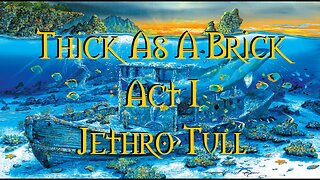 22:40
22:40
Psychological operations
5 months agoThick As A Brick Part I Jethro Tull
193 -
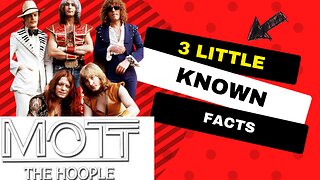 0:45
0:45
Rock n' Roll Trivia
4 months ago3 Little Known Facts Mott The Hoople
15 -
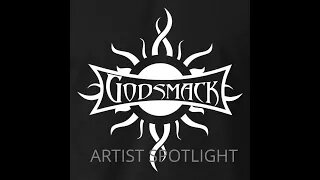 7:48
7:48
Inspiring How UC That
1 year ago $0.03 earnedGODSMACK, Legendary Boston Rockers - Artist Spotlight "I Stand Alone", "When Legends Rise"
351 -
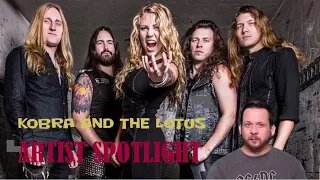 5:18
5:18
Inspiring How UC That
1 year agoKOBRA AND THE LOTUS, Incredible Canadian Rockers - Artist Spotlight "Soldier" "You Don't Know"
931 -
 11:08
11:08
Inspiring How UC That
1 year ago $0.07 earnedSkillet, Legendary Christian Hard Rock Band - Artist Spotlight "Awake and Alive" "Monster"
756 -
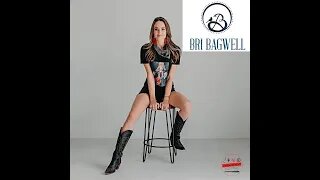 3:34
3:34
Inspiring How UC That
1 year agoBRI BAGWELL, Phenomenal Texas Based Country Singer of "Heroes" and "Beer Pressure"-Artist Spotlight
172 -
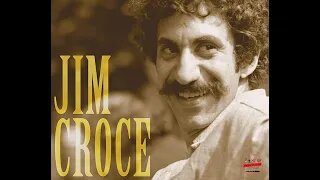 2:23
2:23
Inspiring How UC That
1 year ago $0.04 earnedLegendary Music Storyteller JIM CROCE, Man Behind "Operator" and "Time In A Bottle" Artist Spotlight
158 -
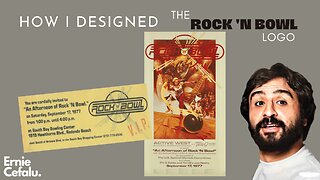 20:42
20:42
ErniesCorner
1 year agoErnie Cefalu Discusses "The Rock 'n Bowl" - Ernie's Corner
113 -
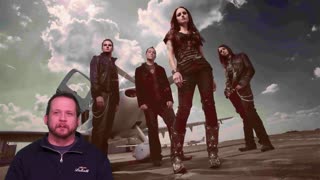 7:16
7:16
IHUCT
1 year agoThe Letter Black, Rocking Christian Band - Artist Spotlight
80 -
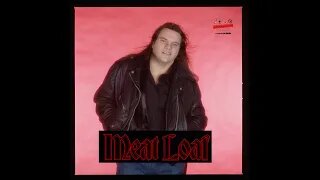 4:16
4:16
Inspiring How UC That
1 year ago $0.01 earnedMEAT LOAF, Legendary Rock Singer, Pioneer of Rock Opera with "Bat Out Of Hell" - Artist Spotlight
137